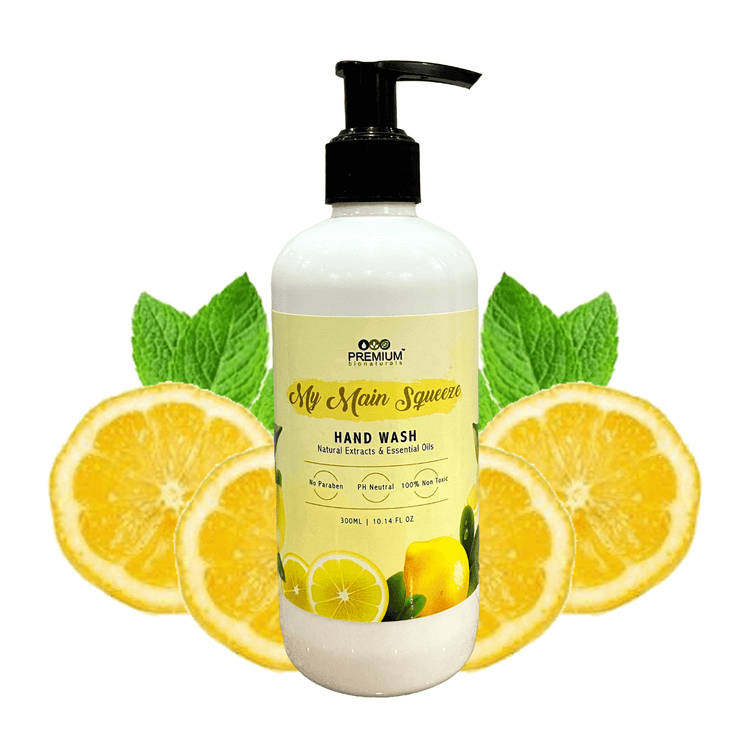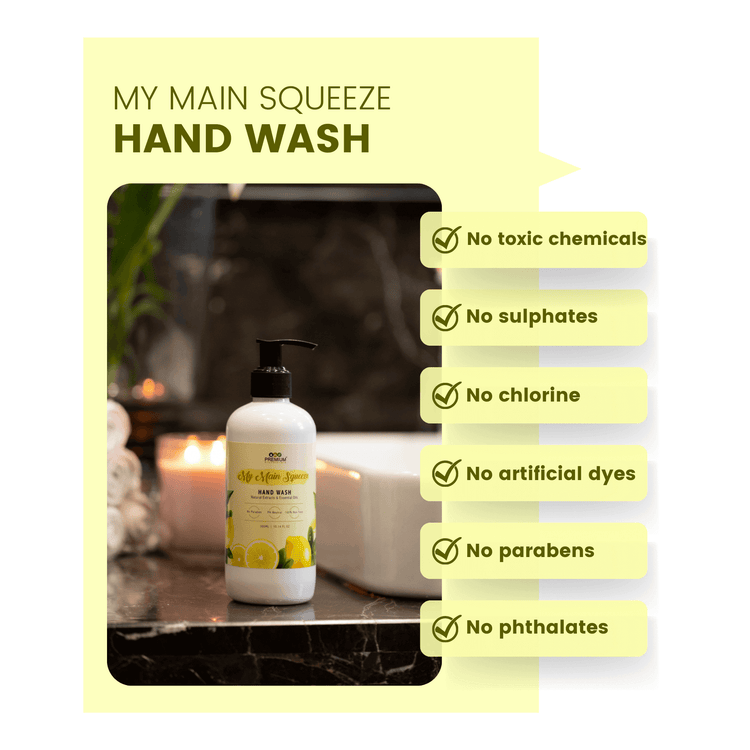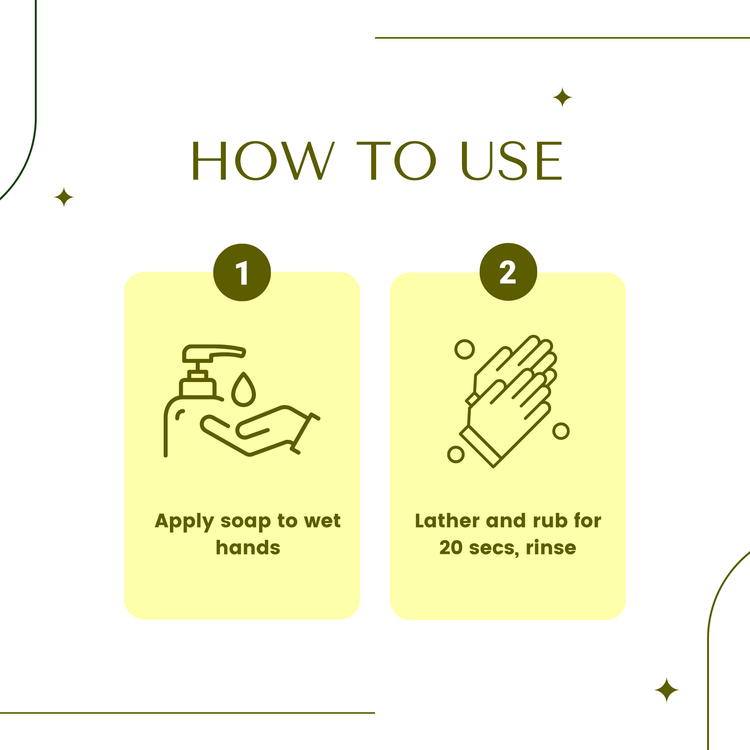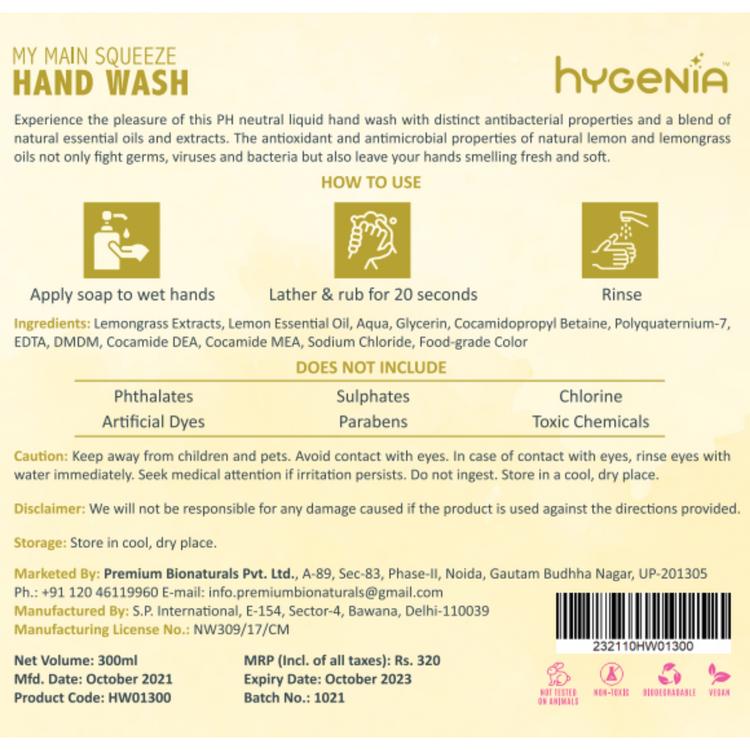We’ve all heard the age-old advice to wash your hands properly, especially when it comes to maintaining clean hands and keeping ourselves healthy. But with hand sanitisers becoming more popular, particularly since the pandemic, the question that comes to our mind - is sanitising your hands just as effective as washing them? Let’s try to simplify it for you:
The Science Behind Hand Washing
Hand washing works for all situations. Whether you are finishing off your garden, preparing food, or visiting a sick family member, hand washing will always get the job done. Hand washing can be just as convenient as hand sanitiser too. These days, more facilities offer portable and outdoor sinks for handwashing to keep everyone safe and healthy.
- Hand washing is particularly effective when you’ve been in contact with dirt, dust, food, animals, or if your hands are visibly dirty.
- The goal of lathering up and scrubbing with antibacterial soap is not only to kill germs, but to wash them away. The combination of suds and friction makes it easier to detach germs and dirt from your skin and rinse them down the drain.
- To wash your hands properly, you have to scrub your hands for at least 20 seconds, and you have to make sure the soap lather is getting in between fingers, under nails, and around the wrist area.
Washing your hands isn’t just a basic hygiene practice— it’s a proven method for effectively eliminating a wide range of germs and bacteria which can cause various diseases.
When is a Hand Sanitiser Most Effective?
One of the biggest pros of using a hand sanitiser is the convenience of using it. It’s something you can easily pump onto your palm and rub in your hands and go about your day. Another pro to hand sanitiser is the alcohol base. The alcohol in hand sanitisers will kill nearly all germs on your hands.
- Quick: Alcohol-based hand sanitisers can kill microorganisms on hands quickly. It’s an efficient way to remove germs from your hands, especially in high-contact areas like public transport or crowded venues.
- Convenient: Hand sanitisers can be used anywhere, making it more likely to use them when water isn’t accessible.
Which sanitisers should we use?
The only type of hand sanitiser that’s genuinely effective are those with at least 60% ethanol and 70% isopropanol. Any sanitiser that has alcohol content less than this is ineffective. Premium Binatural’s Hand sanitiser with Essential Oils, Aloe Vera and Vitamin E contains 75% ethanol, and it meets all conditions to kill germs, bacteria and viruses. Most hand sanitisers tend to dry out your hands due to the strong alcohol content but we have come up with a unique formulation that helps you keep your hands baby soft while having the same effect on germs and viruses. It has the goodness of aloe vera gel and vitamin E to keep your hands from drying out and maintain skin hydration.
Hand sanitisers that people should avoid:
The Food and Drug Administration is investigating a number of companies for selling hand sanitisers containing methanol and 1-propanol. Methanol, also known as wood alcohol, is a known toxin that can cause permanent blindness when absorbed through the skin and be lethal to humans when ingested. Propanol is also a toxin and can be deadly if ingested.
Limitations of Hand Sanitiser
Hand sanitisers are not good if food or other environmental debris are present. Essentially they are good at intermittently cleaning hands that are basically clean, but might contain some microorganisms.
- Hand sanitisers cannot effectively remove harmful chemicals or dirt, as antibacterial soap and water can.
- Hand sanitiser wipes may seem useful, but they can leave a residue that isn’t always effective in cleaning your hands properly.
- Overuse of hand sanitiser can lead to dry, cracked skin as well as redness or discolouration, and flaking.
Hand sanitiser is designed to kill any germs it comes into contact with. So, the germs are still on you. They’ve just hopefully been neutralised. Be mindful of the limitations of sanitiser, especially regarding its inability to clean visibly dirty hands or remove harmful substances.
When Should you Wash your Hands?
Different scenarios call for different hygiene practices. When should you prioritise washing your hands over sanitising them?
- After using the bathroom or changing diapers.
- Before and after eating.
- After coughing, sneezing, or blowing your nose.
- After using a tissue.
- After caring for a sick loved one.
- After handling garbage.
- After touching or changing a dressing or bandage.
- After touching any object or surface that may be contaminated.
- After touching an animal, cleaning up after a pet, or preparing food for pets.
In these situations, hand washing is your best bet for effectively keeping your hands clean and germ-free.
The Final Verdict Which is Better?
So, which method wins the hand hygiene debate?
- Both hand sanitising and hand washing have their place in maintaining hygiene. The best choice depends on the situation.
- In day-to-day scenarios where your hands aren’t visibly dirty, using a hand sanitiser like our Premium Bionaturals Hand Sanitiser can be effective.
- However, when you’re able to access soap and water or use hand wash like our Premium Bionaturals Hand Wash, it is a natural hand wash especially formulated to kill all germs, bacteria and viruses along with maintaining the ph level of your skin so it does not dry out and stay soft and moisturised.
To conclude this battle we have a clear winner: Handwash, we have weighed all pros and cons! Handwashing is truly the most effective way to remove all of the harmful germs and dirt from your hands. There will be situations where hand sanitiser is the only product available, and that will undoubtedly help you in desperate situations.
Frequently Asked Questions:
Q1) Is handwashing better than hand sanitiser?
A) Yes, handwashing with soap and water is more effective at removing germs and chemicals.
Q2) In which situation can hand sanitising replace hand washing?
A) Hand sanitiser can replace hand washing only when hands are not visibly dirty.
Q3) Can hand sanitisers expire?
A) Yes, hand sanitisers can expire, but they remain safe to use past the expiration date, though they may be less effective.
Q4) What is the best method of handwashing?
A) The best method of handwashing is to scrub your hands with soap and water for at least 20 seconds, covering all surfaces, including between fingers and under nails.
Hand sanitizer is more precise at killing bacteria and most viruses, but hand washing can effectively remove all dirt, microbes and chemicals on the hands. Whether you’re trying to remove germs from your hands after a long day out or simply maintaining hygiene, a balanced approach works best. Handwashing is the most effective of all cleaning methods for maintaining hygiene and removing germs. For more interesting debates like this follow us and stay subscribed!














